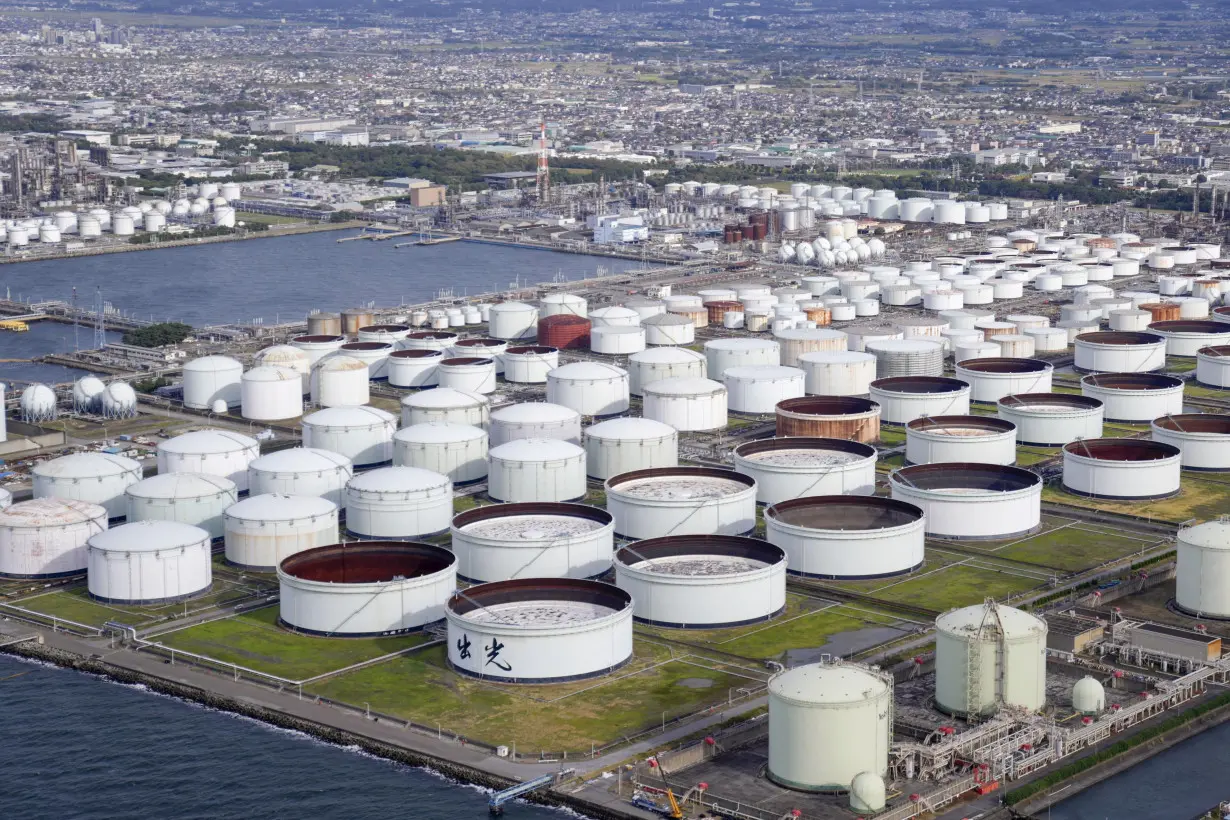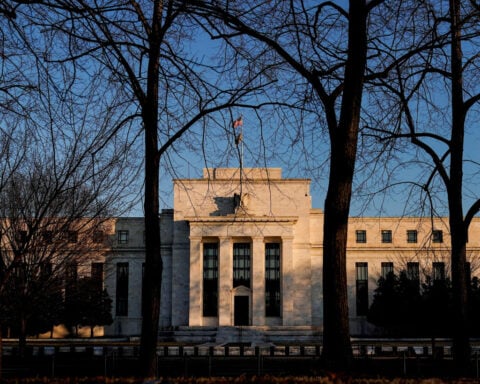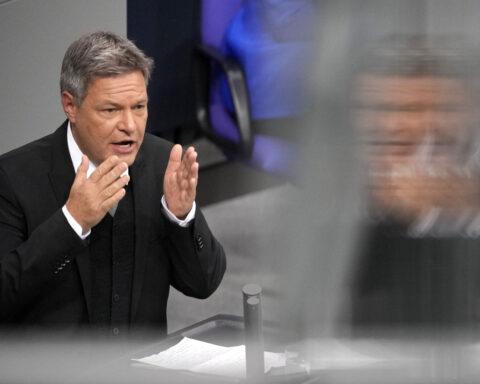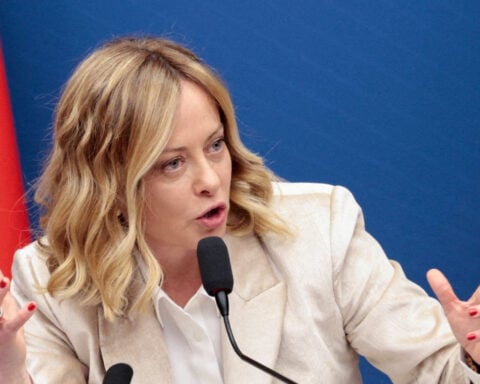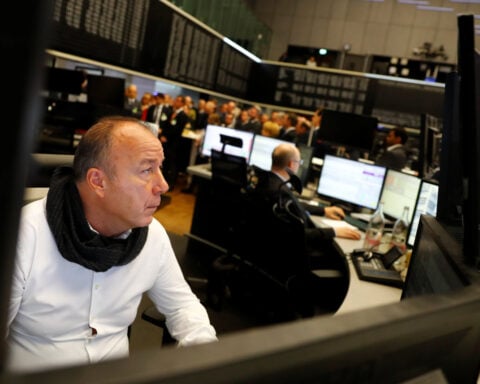By Scott DiSavino
NEW YORK (Reuters) - Oil prices eased about 1% to a three-week low on a rising U.S. dollar and after the U.S. Federal Reserve kept interest rates steady as expected but noted it would keep the door open to possible future rate hikes due to a strong U.S. economy.
Interest rate hikes can slow economic growth and dampen oil demand. A strong dollar makes it more expensive to buy fuel using other currencies, pressuring prices.
Brent futures fell 39 cents, or 0.5%, to settle at $84.63 a barrel. U.S. West Texas Intermediate (WTI) crude fell 58 cents, or 0.7%, to $80.44.
That was the lowest settlement for Brent since Oct. 6 and WTI since Aug. 28. Both contracts settled below their 100-day moving averages, a key level of technical support since July.
Trade was choppy, with both benchmarks up over $2 a barrel early on Middle East worries.
The Fed, which started raising interest rates in March 2022, held rates steady but left the door open to a further increase due to a strong U.S. economy.
The U.S. dollar rose to a four-week high against a basket of other currencies. Crude futures were also pressured by an increase in U.S. crude stocks and gasoline inventories last week as refiners undergoing seasonal maintenance restarted units more slowly than expected to avoid even larger gasoline stock builds.
In Europe, October inflation in the Euro zone was at its lowest in two years, a Eurostat flash reading showed, stoking the view the European Central Bank is unlikely to hike interest rates soon. The Bank of England is expected to meet on Thursday.
In China, the world's largest oil importer, factory activity unexpectedly contracted in October, a private survey showed, adding to downbeat official figures from a day earlier.
MIDDLE EAST WORRIES
"The oil market will remain fixated with the deteriorating demand outlook and if any of the latest developments with the Israel-Hamas war will lead to any supply disruptions," Moya at OANDA said.
In Gaza, a first group of injured people were evacuated to Egypt, a source and Egyptian media said, as Israeli forces pressed their battle against Hamas militants.
Iran's Supreme Leader Ayatollah Ali Khamenei called on Muslim states to cease oil and food exports to Israel, demanding an end to its bombardment of the Gaza Strip, state media reported.
Iran, a member of the Organization of the Petroleum Exporting Countries (OPEC), produced around 2.5 million barrels per day of crude in 2022, according to U.S. energy data.
Callum Macpherson, head of commodities at Investec, said that if there is no threat to output from the war, "oil may struggle to sustain prices around recent highs without support from OPEC+ into 2024, making their meeting later this month crucial."
(Reporting by Scott DiSavino and Nicole Jao in New York, Shariq Khan in Bengaluru, Natalie Grover in London, Mohi Narayan in New Delhi and Emily Chow in Singapore; editing by Muralikumar Anantharaman, Jason Neely, Louise Heavens, Jonathan Oatis, David Gregorio and Cynthia Osterman)

 Germany's economy shrank for the second consecutive year in 2024
Germany's economy shrank for the second consecutive year in 2024
 Italy, Albania, UAE sign deal for energy subsea interconnection
Italy, Albania, UAE sign deal for energy subsea interconnection
 European shares advance as bond yields ease; soft inflation powers UK stocks
European shares advance as bond yields ease; soft inflation powers UK stocks
 Bayern Munich signs US youngster Bajung Darboe from LAFC
Bayern Munich signs US youngster Bajung Darboe from LAFC
 Novak Djokovic breaks a tie with Roger Federer for the most Grand Slam matches in tennis history
Novak Djokovic breaks a tie with Roger Federer for the most Grand Slam matches in tennis history
 China's RedNote: what you need to know about the app TikTok users are flocking to
China's RedNote: what you need to know about the app TikTok users are flocking to
